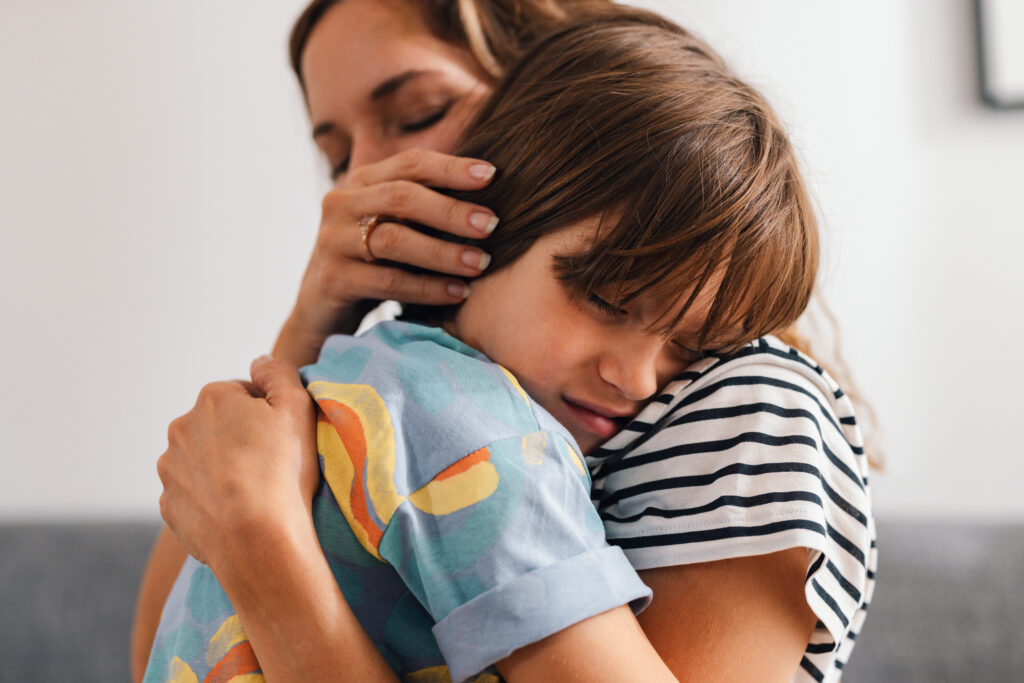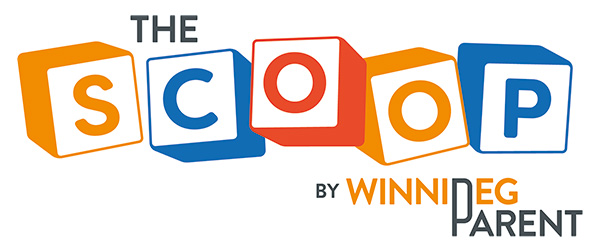“I don’t feel that hungry,” my son mumbled sitting across from me, poking peas around his plate, his eyes distant.
“Do you feel unwell?”
“I don’t know…” he said.
Something about his demeanour had my mommy senses tingling.
“Did something happen today?” I prodded gently.
His chair scraped as he pushed back from the table. I watched him walk to the bathroom and close the door. I waited for a few moments, then knocked gently.
“Everything okay?” I asked.
“You can come in,” he said, his voice hitched.
I will never forget the moment I witnessed my son gripped by a panic attack. As I wrapped my arms around him, I felt like I had fallen back in time. As a child, I struggled with anxiety. But in those days mental health in children wasn’t talked about. My parents tried their best, but they didn’t know what to look for or how to help me.
I promised that if any of my children struggled with mental health issues, I wouldn’t let them suffer as I did. Yet spotting mental health problems in children isn’t always straightforward.
What are some common warning signs to watch for?
Looking back, there were signs. He struggled with separation anxiety, worried about small scrapes becoming infected or a cold becoming life-threatening.
It is challenging to know what’s considered “typical” and what isn’t in child development. Kids go through growth spurts and development milestones well into teenage years. They have unique personalities and temperaments. Remember, noticing one sign doesn’t necessarily mean your child has a mental health condition. However, if these signs persist, get worse, interfere with their day-to-day life or seem age-inappropriate, the Canadian Mental Health Association recommends seeking help for your child.
Below are warning signs identified by the Canadian Paediatric Society (Caring for Kids) as well as from resources from the Canadian Mental Health Association: Ontario, and BC.
Emotional signs
- Feeling persistently sad, unhappy, or down
- Experiencing excessive worry, fear, or panic
- Being frequently irritable
- Having sudden or frequent mood swings
- Having frequent outbursts of anger
Behavioural change signs
- Withdrawing from friends and family
- Wanting to be alone often
- Having trouble getting along with friends
- Being quieter than usual
- Losing interest in previously enjoyed activities
- Regressing in developmental milestones (such as bedwetting in older children)
Physical signs
- Experiencing frequent headaches, stomach aches, or other pains with no medical cause
- Obsessing about body image or weight
- Changing sleeping or eating habits
- Experiencing low energy or fatigue persistently
- Having nervous habits (nail- or hair-chewing, frequent hand-washing)
Academic signs
- Sudden drop in grades
- Withdrawing from school activities
- Difficulty concentrating
- Feeling unmotivated at school
Risky or self-harm signs
- Engaging in increased risk-taking behaviour
- Drinking a lot of alcohol or using drugs
- Defying authority frequently or severely
- Talking about death or self-harm
- Engaging in self-injury (cutting, burning)
If your child talks about suicide or self-harm, seek immediate help from your doctor or a mental health crisis line.
What to do if you notice warning signs
Recognizing these signs is a step in the right direction. You are your child’s strongest advocate. Even if you’re unsure, it’s always better to seek professional help.
Here’s a list you can do to help your child if they are struggling with their mental health:
- Schedule a doctor’s appointment to discuss warning signs you’ve noticed in your child
- No family doctor? Visit a walk-in or urgent-care clinic with your child
- Connect with a mental-health professional (counsellor, therapist, psychologist, or psychiatrist)
- Access local community mental-health services or support groups(for kids, for teens, and for parents) through your health region
- Engage your child’s teacher and school counsellor.
- Contact the Kids Help Phone: Canada’s only 24/7 e-mental health service offering free, multilingual, and confidential support to help all young people. Phone: 1-800-668-6868, text: 686868
Supporting your child’s mental health at home
There are things that you can do at home too. Sleep is so important, regular movement and time outside are vital too.
Here are practical things that you can do at home:
- Build consistent home routines that support healthy sleep habits and meals.
- Encourage outdoor play.
- Support movement throughout the day.
- Manage screen time.
Remember, you aren’t alone on this journey. Reach out, look for support and know that there is a community waiting to reach out and help.






